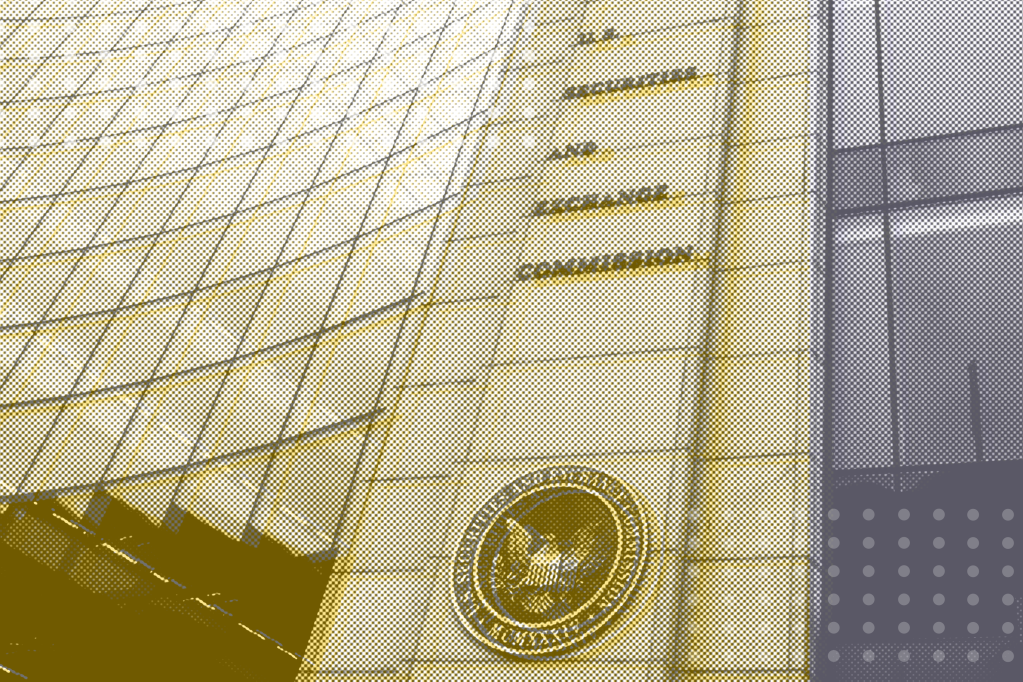9 November, 2023 by Jennifer Hughes in New York
Brokers, hedge funds and investment advisers are pushing back hard against attempts by the main US markets regulator to manage how artificial intelligence is used to give financial advice to investors.
Rules proposed by the Securities and Exchange Commission in July would force banks and fund managers to neutralise or eliminate any conflict of interest involving almost any form of technology when they advise clients.
Comments have continued to flow in to the SEC well past the October 10 deadline, most of which have blasted the plans for their sweeping reach and what one industry group called the regulator’s “arbitrary and capricious” rulemaking style.
“I haven’t seen in a long time — or ever really — such a line of opposition,” said Jesse Forster, equity market structure specialist at research group Coalition Greenwich.
The pushback comes as the US is seeking to establish itself as the global leader in regulating AI. Last week, President Joe Biden signed an executive order bringing together more than 25 government agencies in overseeing the fast-developing technology.
SEC chair Gary Gensler has long worried about the technology’s dangers and told the Financial Times last month that without swift intervention, it was “nearly unavoidable” that AI would trigger a financial crisis within a decade.
The SEC’s July proposals, focused on predictive data analytics and dubbed “Reg PDA” by the industry, are designed to combat the risk that the scalability of AI-related advice could hurt more investors, more rapidly than was possible with earlier technologies.
However, critics have argued that investor protection is already covered under existing rules such as a requirement that broker-dealers act in customers’ best interests and under the fiduciary duties that govern investment advisers.
They also warned that the SEC’s definition of “technology” in the new rules was so broad that it could cover the use of a calculator and that the need to remove any conflict, rather than just disclose it, would be almost impossible to meet.
Forster said the pushback also reflected the cumulative effect of a flood of SEC rulemaking. “PDA hasn’t happened in a vacuum though. People are reaching breaking point and the industry is essentially saying ‘are you freaking kidding me?’.”
The SEC has put forward more rules under Gensler than at any point since the aftermath of the 2008 financial crisis, a recent tally showed, with fewer of them stemming from congressional legislation than under other recent SEC chairs.
“While the commission claims the proposal is intended to be technology-neutral, that is only true in the sense that the proposal is universally hostile to technology.”
Stepher Berger, Citadel policy head
Other Gensler-era proposals include sweeping overhauls of the Treasury and stock markets and new rules for asset custody and environmental, social and governance investing. Rules already enacted have included changes to mutual fund pricing and cyber security disclosures.
In its comment to the SEC, industry body Sifma called for Reg PDA to be dropped entirely as it would amount to arbitrary and capricious rulemaking. The Investment Company Institute, representing asset managers, warned that the proposed rule would raise constitutional issues by unduly restricting advisers’ communications with investors.
Groups including Morgan Stanley and JPMorgan’s wealth and asset management arms responded with individual letters, in addition to the missives from industry groups that normally represent them. Morgan Stanley said it had written “to amplify” the worries set out by Sifma, the ICI and others.
One regulatory expert who frequently responds to SEC proposals said their response uncharacteristically did not include suggestions on how to improve Reg PDA because they felt the whole proposal was unnecessary.
Stephen Berger, policy head for hedge fund Citadel, described the rules as “ill-considered and overexpansive”.
“While the commission claims the proposal is intended to be technology-neutral, that is only true in the sense that the proposal is universally hostile to technology,” he said.
The SEC said in a statement that it “benefits from robust engagement from the public and will review all comments submitted during the open comment period”.
Asked at a Sifma event on Tuesday about the rule and industry concerns, Gensler said the key was protecting investors from the financial equivalent of targeted communications online.
“If the app is putting something in about [people’s] revenues and profits, it’s going to tilt the recommendation. It’s that basic thing we’re trying to address,” he said, noting how this could skew what an investor sees.
Support for Reg PDA has come largely from consumer groups, who say current investor protections do not go far enough. They point to the risk that advisers’ technology could still steer investors even if it stops short of being a recommendation of the sort covered by existing protections.
© The Financial Times Limited 2023. All Rights Reserved.
FT and Financial Times are trademarks of the Financial Times
Ltd. Not to be redistributed, copied or modified in any way.













